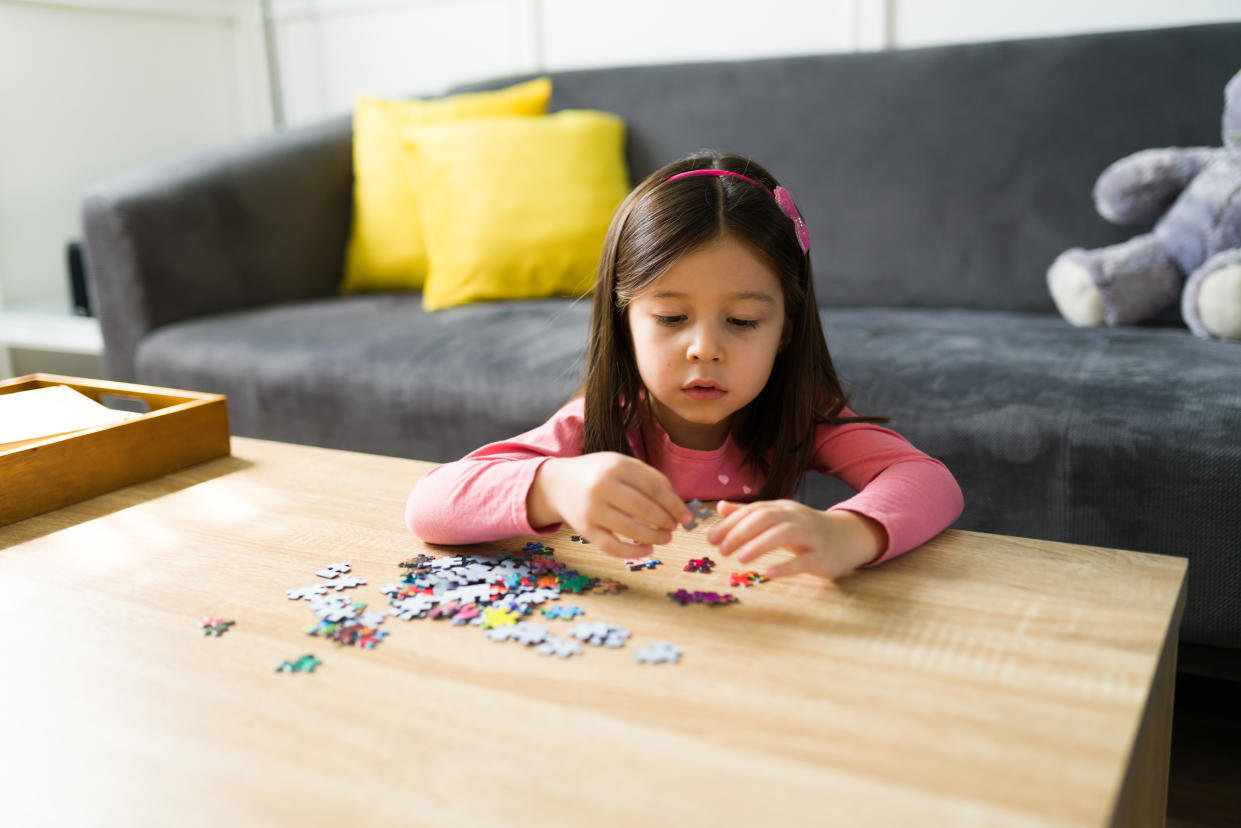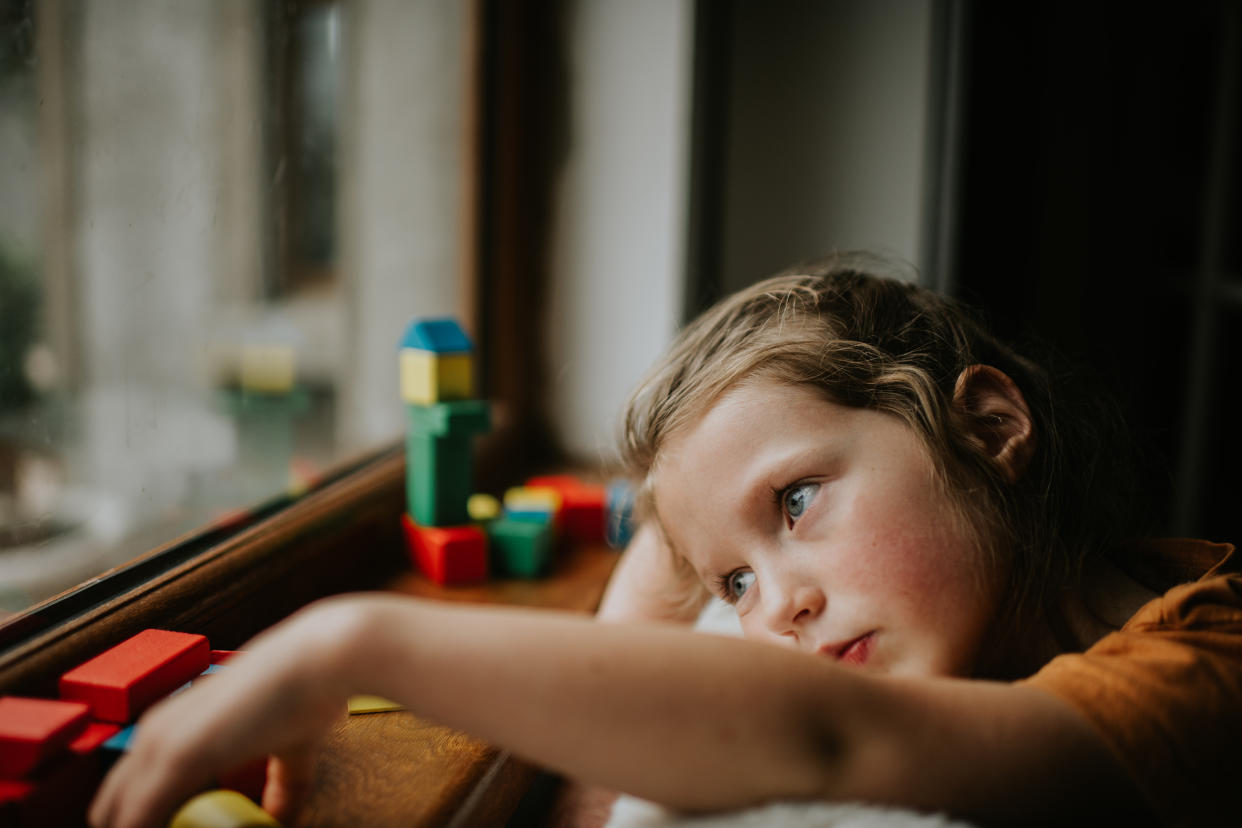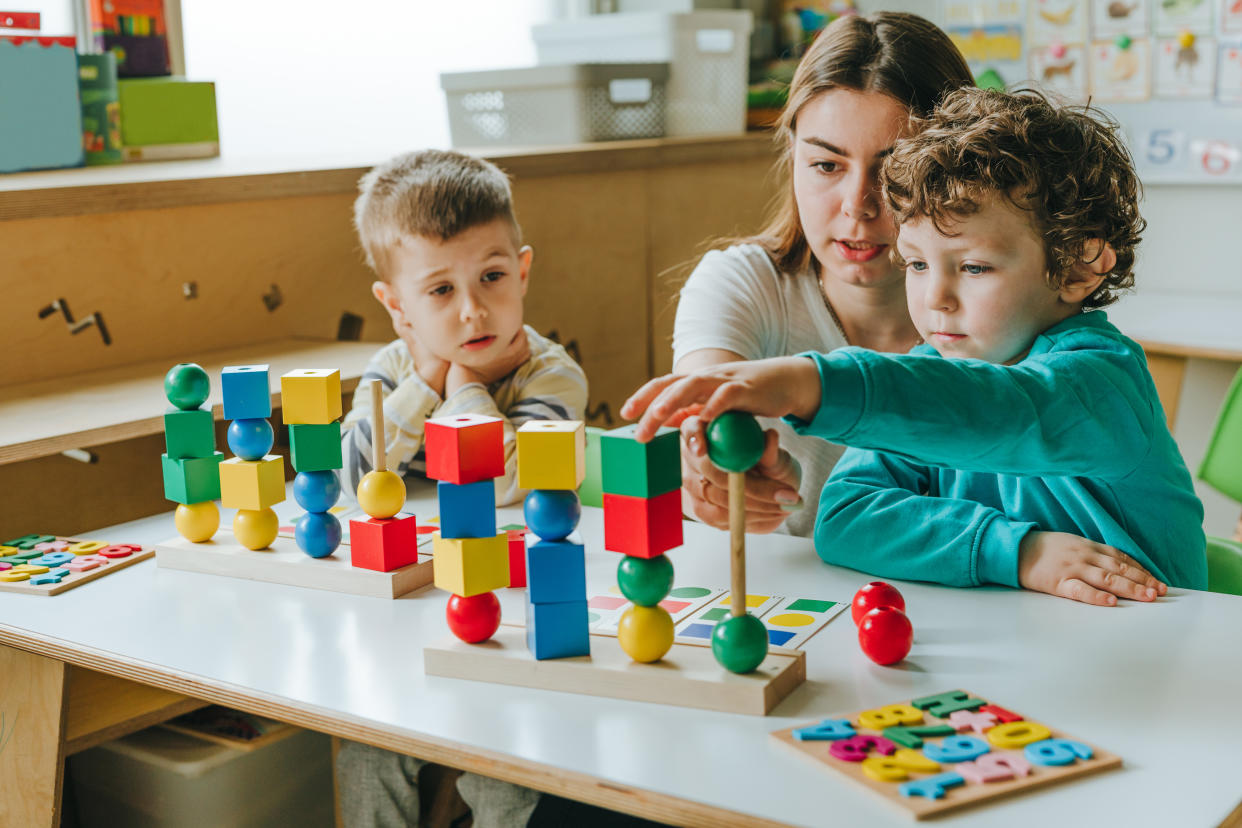Girls as young as five feeling pressure to be ‘perfect’

The way we speak to young children will shape their lives and experiences. But new research shows that certain words that tend to be used more among young girls lead to an overwhelming pressure on them to be 'perfect'.
A new global study by the LEGO Group warns that everyday vocabulary poses a risk towards the confidence of young girls and may even hold them back from reaching their full creative potential.
The research, which spanned 36 countries, surveyed 1,000 UK parents and children aged five to 12. It revealed that the vast majority (89%) of girls all over the country feel pressure to be perfect - even at the tender age of five.
A significant proportion (79%) of young British girls told researchers that when adults use the word 'perfect', it invokes negative emotions in them. A further 77% said certain words and language make them feel like they need to be perfect.
This underlying pressure means that many girls are afraid to make mistakes, with 76% of respondents agreeing with this. Globally, two-thirds of girls aged five to 12 felt reluctant to share their ideas because of the fear of making mistakes.
Both parents and children who were surveyed agreed that, while it is a concern for all children, young girls are more at risk of feeling under pressure. It suggests that, even at a young age, children are aware of the disproportionate impact on girls, with 65% of children feeling that girls are expected to be more perfect than boys.

Children also seem to be keenly aware that boys are taken more seriously compared to girls. More than half of children believe adults listen more to boys’ creative ideas than those of girls, while 68% of parents agree society takes male creatives more seriously than female.
The study also suggests that certain everyday words have become gendered and therefore, is stopping girls from expressing their creativity more freely.
Society is seven times more likely to describe the creative accomplishments of girls and women as 'cute', 'sweet', 'pretty', or 'beautiful', it found. In stark contrast, the creative accomplishments of men and boys are more likely to be labelled as 'brave', 'cool', 'genius', or 'innovative'.
Jennifer B Wallace, Harvard-trained parenting researcher and author, said of the findings: "What we say early sets in deep. Biased language reinforces traditional gender roles, which can play a role in limiting girls' creativity and perpetuating systemic inequalities.
"It can confine them to narrow categories, such as valuing aesthetics over innovation. This implicit bias can hamper girls' confidence and restrict their opportunities in male-dominated fields.
"Challenging these biases is essential for fostering an inclusive society where girls can fully explore their creative potential. Every girl deserves the freedom to explore her creativity without fear or pressure."

Countdown star and word expert Susie Dent teamed up with the LEGO Group to highlight the impact that language has on girls’ confidence.
She said: "The findings from LEGO Group confirm that the language we use towards children, and particularly young girls, can have an enormous impact. It’s essential that we challenge our biases if we’re to foster a society where girls can fully explore their creative potential.
"Every girl and woman deserves the freedom to explore her creativity without fear or pressure. The good news is that, by changing our language, we can be instrumental in changing the future."
The girls surveyed said that they would be less afraid to try new things if mistakes were praised more as learning opportunities (80%), with a further eight in 10 saying they would feel more confident to show their work and value progress over perfection.
In even larger proportion (90%) believe they would have more confidence if adults focused more on the creative process of their work instead of the final result. 86% said this would make them feel less worried about making mistakes.
In order to help show how girls’ creativity can soar when given the freedom to play, the LEGO Group released a short film titled More Than Perfect.
Psychotherapist and researcher Dr Anika Petrella said of the short film: "A perfection mindset encourages us to stay in our lanes, to fear failure and give up at the first sign of struggle. In contrast, a growth mindset encourages us to be brave, embrace failure and to build ourselves up. It creates a love of learning and a resilience that is essential for great accomplishment.
"When we filmed More Than Perfect it was fascinating to observe the impact that our words had on girls’ ability to play and experiment freely. Teaching girls that experimentation triumphs over perfection is crucial to empower their authentic, creative selves and what better way to do this than through play?"
The toy company is also rolling out a campaign to celebrate girls and their creativity, with a series of free creativity workshops being launched in select LEGO stores and on the website.
Read more about gender inequality:
Women being misdiagnosed as health issues ‘not taken seriously’ (Yahoo Life UK, 5-min read)
Why more than half of women in the UK are stopping exercise (Yahoo Life UK, 4-min read)
Women do 21 hours more unpaid work than men a week, survey finds (Yahoo Life UK, 4-min read)


